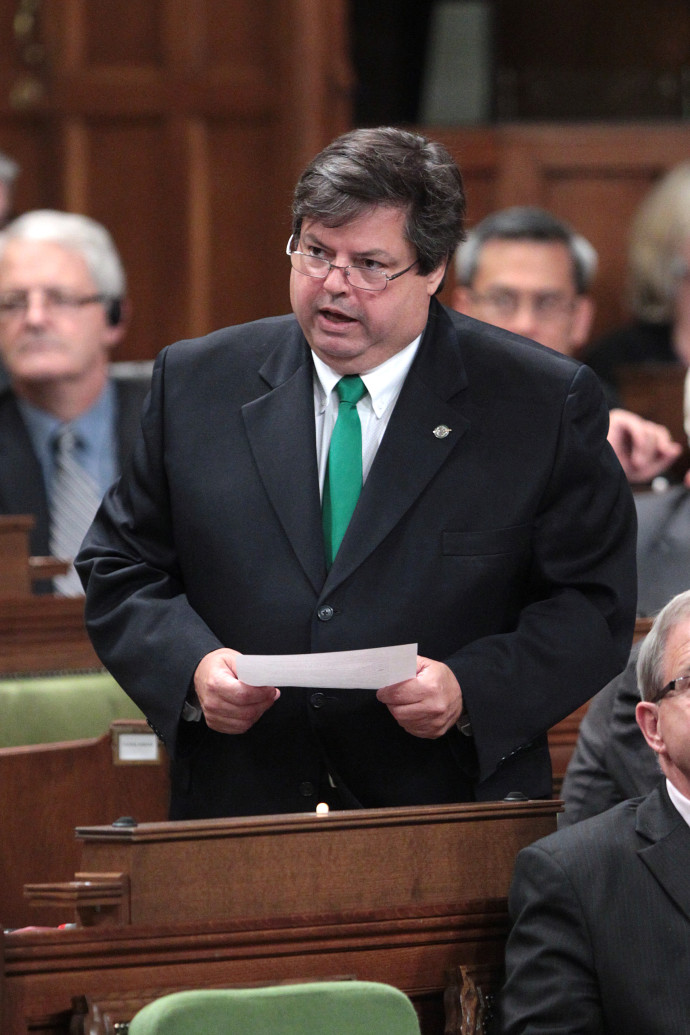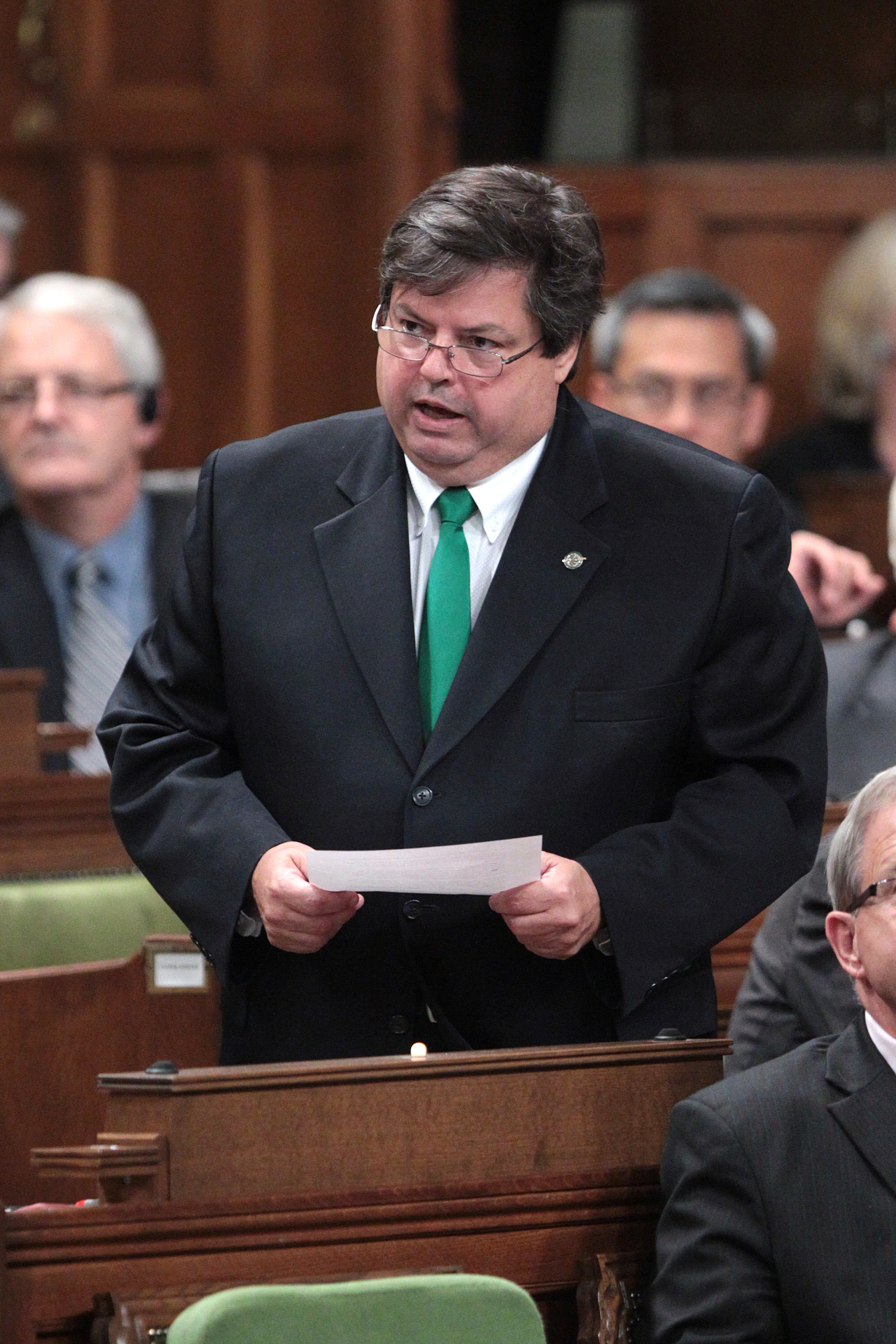October 12, 2014
After the 2008 crash, a call for a National Strategy for Co-operatives
By Hon. Mauril Bélanger, M.P.

The Growing Economic and Social
Importance of Co-operatives
“The 2008-2009 financial crisis led to a revision of thinking by many governments in Europe and elsewhere about the value of co-operatives. It was noted that co-operatives and mutuals proved more resilient through the crisis due to their longer term vision and respect for their members.”
Since 2012, I have had the honour of serving as the Liberal Advocate for Co-operatives in the Parliament of Canada. I first asked my party leader, Bob Rae at the time, for the assignment because I was keenly aware of the importance of this sector and I wanted to give it greater profile within Parliament. I am grateful to my current leader, Justin Trudeau, for allowing me to continue in this role.
In my role as Advocate, I have done my best to increase awareness among Members of Parliament from all parties of the important role that co-operatives play in our society and in our economy. I am pleased to note that more MPs than ever are now venturing out to visit co-operatives in their ridings and regions.
One of my early initiatives was to form an all-party parliamentary caucus on co-operatives. The idea was well-received from the outset and about twenty MPs, representing all parties, have joined this caucus. Over the past two years we have held several meetings, with the participation of the Conseil canadien de la co-operation et de la mutualité (CCCM) and the Canadian Co-operative Association (CCA), now united under the name Co-operatives and Mutuals Canada, to examine issues of importance to the co-operative sector.
Canadians are increasingly exasperated by the extreme partisanship so evident within our parliamentary system and the refusal or inability of parties and MPs to work together. I believe we need to apply the model offered us by the co-operative sector to the business of the nation. We should be partners – not enemies, collectively invested in making Parliament work for the benefit of Canadians. The idea of MPs and parties working together should be accepted as both natural and productive, rather than seen as a threat to the authority of party leadership.
Why co-operatives are successful
The 2008-2009 financial crisis led to a revision of thinking by many governments in Europe and elsewhere about the value of co-operatives. It was noted that co-operatives and mutuals proved more resilient through the crisis due to their longer term vision and respect for their members.
For the past three years the World Economic Forum has identified growing economic disparity as a major challenge both for individual countries and internationally. The modern economy is largely dominated by enormous national and multinational corporations whose profits contribute to the economic divide as a small group of executives and shareholders receive a much larger piece of the pie than their employees or customers. Co-ops, on the other hand, return profits to members and benefit entire communities. Also, co-op executives, although well paid, do not earn huge salaries and bonuses, and co-op front line staff are usually better paid than private sector front line staff.
The British government, currently a centre-right coalition, has expressed its interest in promoting co-operatives and mutuals, and has appointed a task force to explore the possibility of employee ownership as an element of public service reform. The latter idea could lead to the formation of independent or joint venture-based co-operative social enterprises for the delivery of public services.
It is also worth noting that Andrew Crane, president of a major agricultural co-operative in Australia, was recently invited to join the select business advisory group that offers policy advice to G20 leaders.
The significant contributions made by Canadian co-operatives to their local and regional economies show that they can profit financially while holding true to their fundamental values of self-help, equity, equality and sustainability. Also, co-ops usually offer better prices. For example, funeral co-ops may charge only half of what private funeral services cost.
Finally, co-op jobs generally stay in their community and are not shipped offshore.
What co-operatives need
The co-op model, as a means for both community interaction and support, is one of the best models that we have. But, in order to compete against other business models, co-operatives need a level playing field. I believe it is imperative that we provide them with the same resources available to other businesses, as the very nature of co-ops fosters community development and builds sustainable roots in ways that investor-owned corporations cannot.
I believe that time has come for the Canadian co-operative community to seize the opportunity offered by the Canada’s 150th anniversary in 2017 to showcase their work. Would, for example, the World Organization of Credit Unions (WOCU) be willing, once again, to hold its annual meeting somewhere in our country? Would the International Co-operative Alliance be willing to host its biennial meeting here as well? In 2013, they were in South Africa; they will be in Turkey in 2015; why not in Canada in 2017? Could we celebrate Canada’s 150th anniversary by encouraging the birth of 150 new co-operatives in this country?
Another idea, recently put forward by the co-operative and mutual movement in Canada, is the drawing up of a national co-operative development strategy. A National Strategy on Co-operatives could help federal and provincial governments provide consistent legal frameworks across the country, promote public awareness of the benefits and potential of co-operatives and mutuals, offer moral support for further expansion of the sector and facilitate on-going capital investment.
These ideas certainly hold great promise and I hope I will have an opportunity to help bring one or more of them to fruition, perhaps with the collaboration of my colleagues in Parliament’s all-party caucus on co-operatives.

The Honourable Mauril Bélanger, M.P. for Ottawa—Vanier Mauril Bélanger graduated from the University of Ottawa and has held various positions in the public and private sectors, including Chief of Staff to the Chair of the Regional Municipality of Ottawa-Carleton. First elected to the House of Commons for Ottawa—Vanier in a by-election in February 1995, Mauril has been returned at every election since then. He was appointed to Cabinet in December 2003 as Deputy House Leader and Chief Government Whip. After the 2004 election, he was reappointed to Cabinet where he assumed numerous responsibilities. Mauril co-founded and currently co-chairs the Canada-Africa Parliamentary Association. In May 2012, he was named "Liberal Advocate for Co-operatives." The same year, he joined the board of the Parliamentary Centre, a non-governmental organization dedicated to the strengthening of democracy.



